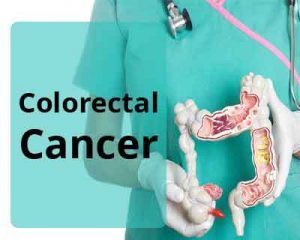- Home
- Editorial
- News
- Practice Guidelines
- Anesthesiology Guidelines
- Cancer Guidelines
- Cardiac Sciences Guidelines
- Critical Care Guidelines
- Dentistry Guidelines
- Dermatology Guidelines
- Diabetes and Endo Guidelines
- Diagnostics Guidelines
- ENT Guidelines
- Featured Practice Guidelines
- Gastroenterology Guidelines
- Geriatrics Guidelines
- Medicine Guidelines
- Nephrology Guidelines
- Neurosciences Guidelines
- Obs and Gynae Guidelines
- Ophthalmology Guidelines
- Orthopaedics Guidelines
- Paediatrics Guidelines
- Psychiatry Guidelines
- Pulmonology Guidelines
- Radiology Guidelines
- Surgery Guidelines
- Urology Guidelines
How high-fat diet impacts colorectal cancer

Poor diet is associated with 80% of colorectal cancer cases, but the exact pathways by which diet leads to cancer are not known.
In a newly published study, Cleveland Clinic researchers have identified a specific molecular pathway that plays a key role in the link between a high-fat diet and tumor growth in the colon.
In the July 6 issue of Stem Cell Reports, the team showed in pre-clinical models that cancer stem cell growth in the colon was enhanced by a high-fat, Western diet. Cancer stem cells are a subset of resilient, aggressive malignant cells that are believed to be partially responsible for spread and recurrence of cancer.
Furthermore, when the researchers blocked the JAK2-STAT3 cellular signaling pathway, a widely studied pathway known to promote tumor growth, the spike in cancer stem cell growth caused by the high-fat diet declined.
This study provides more insight into how the JAK2-STAT3 pathway is linked to diet-related cancer. Pinpointing the exact mechanism can help researchers develop therapeutics to counteract the negative effects of a Western diet on colorectal cancer.
Colorectal cancer is the third most common cancer in the United States with more than 130,000 cases reported annually. The disease arises as a result of a combination of several genetic, epigenetic and environmental causes, such as diet.
"We have known the influence of diet on colorectal cancer. However, these new findings are the first to show the connection between high-fat intake and colon cancer via a specific molecular pathway," said Matthew Kalady, M.D., co-author of the study, colorectal surgeon, and Co-Director of the Cleveland Clinic Comprehensive Colorectal Cancer Program. "We can now build upon this knowledge to develop new treatments aimed at blocking this pathway and reducing the negative impact of a high-fat diet on colon cancer risk."
The team analyzed human colorectal cancer-free survival data in the Cancer Genome Atlas and evaluated primary and metastasized colorectal cancer specimens via microarray analysis. They further verified the link between high-fat diet and stem cell maintenance in obesity-resistant mice.
"These findings also provide a new way in which cancer stem cells are regulated and provide insight into how environmental influences, such as diet, can alter cancer stem cell populations in advanced cancers," said Justin D.
For more details click on the link : Sheelarani Karunanithi et al. RBP4-STRA6 Pathway Drives Cancer Stem Cell Maintenance and Mediates High-Fat Diet-Induced Colon Carcinogenesis. Stem Cell Reports, July 2017 DOI: 10.1016/j.stemcr.2017.06.002

Disclaimer: This site is primarily intended for healthcare professionals. Any content/information on this website does not replace the advice of medical and/or health professionals and should not be construed as medical/diagnostic advice/endorsement or prescription. Use of this site is subject to our terms of use, privacy policy, advertisement policy. © 2020 Minerva Medical Treatment Pvt Ltd